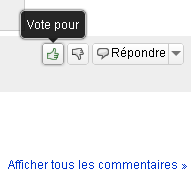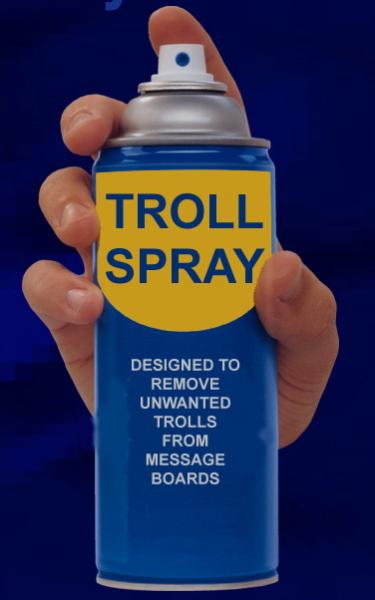Managing comments on a blog or a product can quickly end in a shoot 'em up game. I will explain to you first of all how to keep calm in this type of situation, but above all how to manage a crisis situation.
Introduction
Definition of a troll

A troll, in definition digital, is a person who participates in a discussion (on a blog, a forum, etc.) with the deliberate aim of disrupt the balance of the debate, launch controversies, provoke or annihilate any conversation.
This involves the use of sarcastic or off-topic expressions (“Fake!” » launched at tire-larigot for example), insults, repeated gravelly remarks, or even incessant references to controversial subjects.
The consequences of trollism on a site can be disastrous, starting with the alteration of your brand image. Indeed, it is difficult for newcomers to differentiate between you, your community and the degrading comments made by trolls.
The scourge of internet troll comments
Between freedom of expression and proven abuse, the line is very blurry. And if the slip-up takes place on your own site, the legal consequences coupled with the tarnishing of your image can quickly lead you to lose your mind, and no longer be able to concentrate on your main activity.
However, know that you are not alone: even the biggest news sites have asked themselves the question of how to manage comments on their articles. Open, closed, reserved for their subscribers?

It's difficult to cling to the argument of the sacrosanct freedom of expression when we see certain comments on news or video sharing sites. The comments are made behind a computer screen, which gives their author the impression that they are protected.
From then on, we are entitled to the depth of their thoughts, usually held behind their windshield or at the local bistro. Except that the local bistro, in this specific case, becomes your own site! The insolvent task of moderators becoming more and more difficult, and the legislation being as usual 20 years late, certain sites have shown the way, and decided to take action.
Possible solutions to combat trolls
Comments reserved for members
Registration required before being able to participate in debates on a website is the simplest idea that comes to mind to counter trolls. Unfortunately, this option is only advantageous for professional sites that already have a huge audience, such as the online press. In this case, everyone can see the comments, but to react, you must register. This is a good way to cool down trolls who, if they have registered, are much easier to identify and ban than when comments are open to the public.
Unfortunately, this is the most segmenting option, because it prevents quality contributors from commenting on your content due to laziness or refusal to subscribe to your site.
An authoritarian disclaimer in comments
Just before posting a comment, the user sees here a explicit message reminding him of his duties. Very effective, despite what you may think, this type of warning is a good way to limit damage when you do not want to move to compulsory registration.
Comment scoring
If racist or insulting comments can indeed be “hidden” by poor rating, this process can backfire like a boomerang in a case of crowd effect. In other words, if a product or article is unanimously opposed to it, the most appalling comments can be extremely well rated and end up as a “star” comment.

Put the trolls in the cellar!
The best solution in my opinion came down to a module available on certain CMS: the plugin Cave Your Trolls, translate “lock up the trolls” . Unfortunately no longer available under WordPress, this extension aims to “put the troll in the cave”, in other words let him publish his content without anyone being able to see what he publishes, except himself. By the time the troller realizes that he is talking to himself, you have a good margin and most will get bored and go trolling where it gets reactions.
If anyone feels up to updating or creating a new WordPress plugin like “Cave Your Trolls”, do not hesitate to let us know and we will update this article with its extension.
Crisis management and conclusion
Distinguish between a troll and constructive criticism
In the war against trolls, our acuity can quickly reduce. Be careful not to moderate a comment just because it is negative.

If permanent negativity is one of the common denominators of trolls, and they are often driven by an unhealthy desire to harm you and criticize you at all costs, one-off negative criticism relating to a specific and reasoned point should not be not be hidden, ignored or treated with disdain. On the contrary, in the case of a company for example, we can only advise you to take negative comments into account, and to respond to them with intelligence, respect and argumentation.
The conclusion: don't give too much importance and time to trolls
Fighting excessively negative and degrading comments for your brand image is good. Doing nothing more than that, and becoming irritable every 5 minutes because of it, that's bad! Never get carried away by this problem, know that it is completely structural, it affects almost everyone and is not directed against you in particular.

Therefore, try to apply a suitable method to manage this problem and ignore those who slip through the cracks: by focusing more on your core business, and doing a good job, your community, your fans or your readers will take it upon themselves to ridicule the trolls.

5 Responses
Hello, excellent summary article 😉
I would like to extend this based on my own experience as a forum admin.
The worst possible trolls are those who go under the radar, and who perhaps troll without even realizing it: chronic polemicists, those who never agree, those who are capable of producing 8,000-line responses quoting each paragraph from every guy who addressed them in previous posts. Nothing like it to ruin a conversation and discourage participation.
And these particular members (more than trolls, I call them nitpickers) are very complicated to manage, because their behavior is not obviously harmful on purpose; they participate in their own way; but their way of participating kills the discussion, and it is very difficult to explain it to them without giving them the impression that we are picking on them for nothing.
As for the other trolls, the obvious shit-makers, the Cave Your Trolls solution (which I didn't know about) is just brilliant, because the ban carries the risk of inciting them and focusing their anger on you. I happened to end up with extremely aggressive and threatening messages after banning a troll who took it badly and wanted to play dumb.
Finally, a trap would be to want to completely pacify your community, and to want to ensure that everyone agrees, or deprives themselves of not agreeing: that people have different points of view and divergent is the very essence of your community. If the debate dies, your forum dies.
The whole challenge is therefore to succeed in maintaining the debate (even if it means animating it by launching controversies or putting different points of view into perspective), but to ensure that it remains healthy and courteous, avoiding the phenomena of escalation (“so-and-so annoys me because he always criticizes me”) and trying to keep the discussion alive for as long as possible.
What a job 🙂
I hadn't thought about the "nitpickers", just as I sometimes fall into the trap of editing increasingly consensual content in order to avoid problems. Interesting point of view then :)
Cave Your Trolls is indeed a great way to fight against trolls and other haters, too bad it no longer exists under WP.
The same goes for aggressive messages or threats after a ban or call to order, which are very difficult to manage, the worst being the victimization of the troller who denounces censorship and injustice, as if his case were a global concern...
As a former French community manager for the CouchSurfing network, I give feedback on troll management here:
http://antoine-rolland.fr/blog/le-moderateur-de-forum-face-aux-trolls/
Thanks for sharing Antoine!
“If permanent negativity is one of the common denominators of trolls, and they are often driven by an unhealthy desire to harm you and criticize you at all costs, one-off negative criticism relating to a specific and reasoned point does not should not be hidden, ignored or treated with disdain. »
That's exactly what I think (not everyone can agree on everything but there is a moment when we feel that it is becoming exaggerated and that's when we tell ourselves that we are facing a or troll(s), or you should give no importance to the discussion, which is the case with trolls) and from my experience, I have the impression that trolls who only spend their time criticizing everyone, through mockery or otherwise, is ultimately more to be pitied than anything else, especially those who persist. They must have an ego problem not to be able to put an end to their “childish games”. But we can always hope that they end up getting “drunk” themselves with their sterile and endless games. However, there will always be new trolls as long as the internet lives: when one “dies”, another “is born”. And for the rest of us, we have to know how to “slalom” on the net to only read what is interesting.